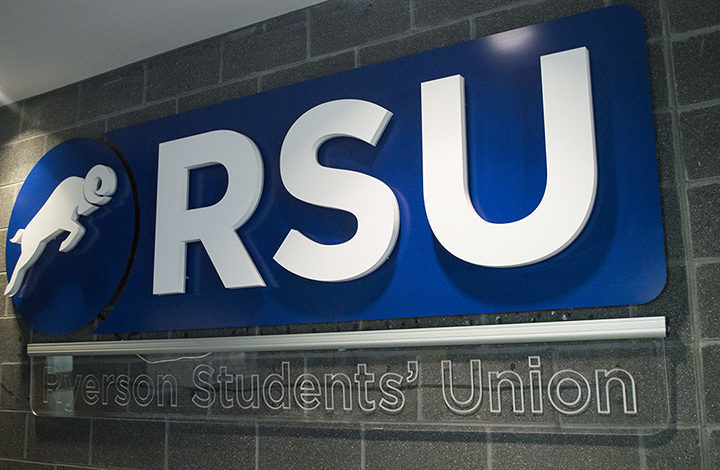
The Ryersonian has obtained a copy of the new operating agreement between the RSU and Ryerson University, which includes mandates for increased communication and transparency between the union and the university.
The operating agreement outlines the commitments Ryerson and the RSU are willing to make to maintain a good working relationship. It also outlines terms and conditions for terminating the agreement if there is a breach of contract. The agreement is valid between May 1, 2020 and April 30, 2025 and must be renewed or renegotiated nine months before the expiration date.
The current agreement was approved by the RSU’s board of directors on April 21 and ratified by Ryerson’s Board of Governors on April 30, putting an end to the ongoing conflict between the university and the student government. The agreement comes after the Ontario Superior Court of Justice granted an injunction in the RSU’s favour in March and ordered the university to return previously-withheld student fees to the union. The judge also ordered the university to recognize the RSU as the official students’ union to represent full-time students.
This came after Ryerson announced in January it was terminating its 1986 operating agreement with the RSU after the union failed to meet conditions set out last year. The conditions included providing a forensic audit, which the union failed to provide. The RSU argued to the court that it would be forced to shut down services and operations if the university did not remit the withheld fees.
The RSU collects more than $4 million in student fees each year, according to the facts presented during the court proceedings.
“The RSU has been clear from the start: students should decide who represents them, their priorities and how they are held accountable,” the union said in a statement published on March 9.
These are the commitments that Ryerson University and the RSU made in the new operating agreement.
Covenants made to define the roles and responsibilities of both parties
The RSU will remain a separate entity from Ryerson University according to the agreement. The union has committed to use the RSU fees per its bylaws and policies. The RSU also committed to record revenues, expenses and use of RSU fees following “generally accepted accounting principles.”
The union also has to designate an officer, director or employee as an official liaison between Ryerson and the RSU. The officer will also be monitoring, establishing and administering the RSU financial system, according to the operating agreement.
Ryerson has committed to recognize the RSU as the official students’ union to represent full-time undergraduate and graduate students on campus. The university has also committed to collect ancillary fees on behalf of the union in the fall, winter, spring and summer terms.
Ryerson has a responsibility to remit and collect fees from students.
Ryerson has agreed to collect the RSU’s ancillary fees as part of the university’s normal tuition-collection activities. Ryerson is not responsible for the RSU’s use or misuse of the ancillary fees that are collected from students. The university is also not responsible for any failure by the RSU to pay amounts owed to its members.
Ryerson also has a responsibility to notify all full-time students about the RSU’s ancillary fees. Any changes to the ancillary fees need to be approved by the RSU and Ryerson’s Board of Governors.
RSU has to provide its audited financial statements and operating budget to Ryerson
The RSU has to provide Ryerson with a copy of the union’s audited financial statements within 180 days from the end of the operating year. The union also has to provide the university with a copy of its operating budget within 30 days of approval by its board of directors. The RSU has committed to use the student fees in accordance with its bylaws and policies.
The RSU has to maintain all financial records relating to the students’ fees for at least five years. The RSU also has to keep its tax records for at least seven years according to the agreement.
Both parties can terminate the agreement if there is a breach of contract
The term of this agreement is set for five years starting from May 1, 2020. Ryerson and the RSU have to review the agreement nine months before its expiration to renew and/or negotiate a new agreement. If the university and the union cannot agree to terms of renewal before the expiration of the agreement, it is automatically extended for one year. A maximum of five successive one-year extensions can be made.
If a party breaches any part of this agreement, the other has to provide written notice of the breach so it can be remedied. A breach is a failure to comply with any terms of the agreement. The non-breaching party may terminate the agreement if the breach is not remedied within six months after the receipt of the notice.
Ryerson and RSU must try to resolve disputes internally
Ryerson and the RSU must work together to resolve disputes internally within 30 days if a dispute arises concerning the operating agreement. The dispute will be settled by arbitration if the university and the union cannot resolve the claim. The arbitration will be settled by following the Ontario Arbitration Act. It will be conducted by an arbitrator that does not have any financial or personal interest of either party. Arbitration proceedings must be confidential and are not available to the public unless otherwise required.
